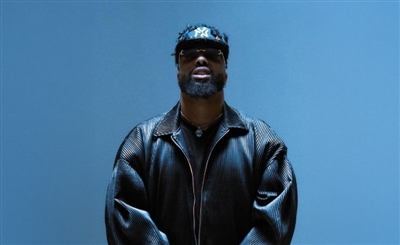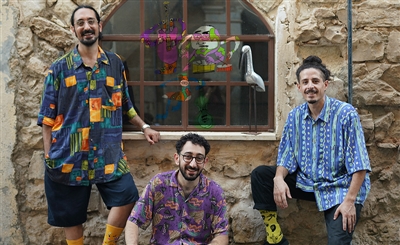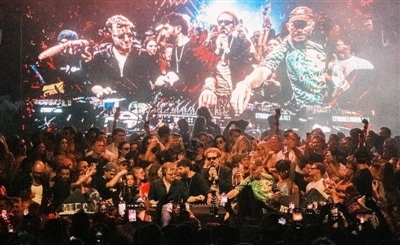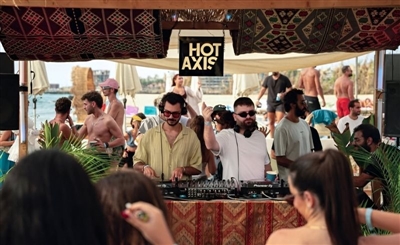Qesas W Aswat: Unravelling Music Scenes Through Storytelling
"Qesas W Aswat is a project dedicated to narrating the origins of music scenes and the emergence of genres or specific eras through curated storytelling."
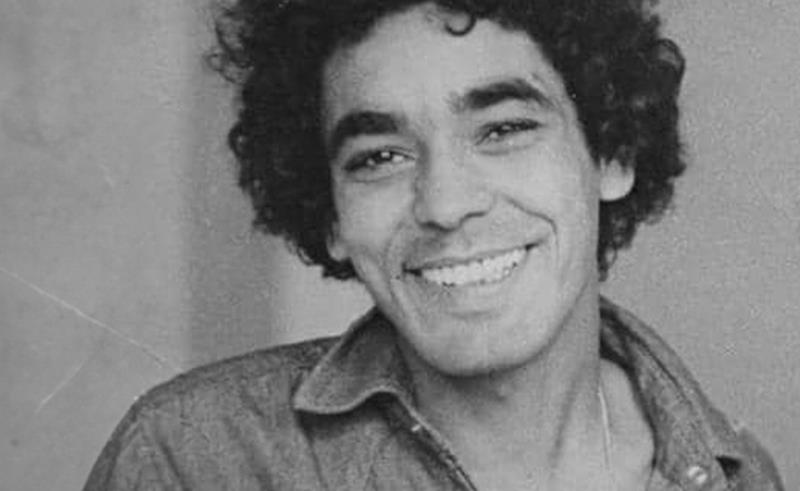
At the beginning of March, I stumbled upon a video on Instagram that tells the story of the pre-trap era in the Egyptian music scene. A narrator's voice recounted the events that paved the way for the trap wave that swept across Egypt at the end of the last decade. The video, a short teaser for an extended episode on YouTube, piqued my curiosity.
I followed the trail to a YouTube channel called Qesas w Aswat, described as "a podcast about music and what’s beyond sounds" - a description both subtle and succinct. The channel featured only two videos at the time: a 10-second introduction and the extended episode I sought. Titled ‘Emo Rap: The Pre-trap Era’, the 14-minute clip showcased a creator who had done their homework, offering insightful commentary on music with a palpable passion and seriousness that resonated deeply.
The video traced the history of emo rap and how the genre was birthed from various musical scenes, from the punk movement in the late 70s to goth rock and pioneering hip-hop experiences of the mid-2000s. Through a storytelling approach that felt personal yet objective, it balanced well-conducted research with subjective commentary and even hot takes, so to speak.
For years, I thought that the music of the younger generation doesn’t get the proper recognition and isn’t discussed on an intellectual level. I contacted Muhammed Fahmy to gain better insights into the motives and objectives of Qesas W Aswat and to learn more about his upcoming projects and episodes. The creator stated that this is a personal exploration of music that focuses on certain genres and eras that introduced greats and had a serious impact on music on a larger scale. "I'm exploring these genres and topics as I’m making the episodes, so it’s a collaborative journey for both the audience and myself," Muhammed Fahmy tells SceneNoise.
The channel has now released its second episode, deconstructing how modern Egyptian pop came to being. It analyzes and tells the story of how a "scenius" created an entirely original sound, thanks to incredible music composers whom the creator considers the unsung heroes of this era. This approach doesn’t necessarily focus on the big stars who have been the focal points over the years. Through thoughtful and selective song curation, the content adds an element of music discovery and keeps viewers engaged.
"Qesas W Aswat is a project dedicated to narrating the origins of music scenes and the emergence of genres or specific eras through curated storytelling," Fahmy explains. "I want to give the listener a deeper understanding and different insights into music genres." The two videos do exactly that, focusing on the emergence of "scenes" in music, how groups of musicians came together to form communities that allowed them to make groundbreaking music, and how this music became influential to other genres and scenes, all tied together with personal storytelling that gives context to these influential eras.
In the episodes to come, the creator expressed his desire to get more specific and personal as the channel grows. "Later, I will start talking about specific topics, albums, or music pieces,” he says. “For example, I’m very interested in discussing cinematic albums or concept albums, but as the channel is just starting, I want to introduce wider and broader topics before getting into the specifics. The approach is definitely personal,” he adds. “If I don’t like this music, I’m not gonna talk about it."
In the current music climate, there's a strong need for an informative and serious platform that offers insightful analysis and discovery, while also being entertaining to appeal especially for younger audiences who want to gain a deeper understanding of musical topics. For music enthusiasts, a platform that delves deeply into musical subjects through a storytelling approach, while providing musical snippets and bits, creates a compelling visual experience. Today, digital content often overshadows traditional reading, but it often lacks depth and relies heavily on algorithms. After looking at what Qesas w Aswat is doing, there’s a strong argument to make for calling it a pioneering platform in terms of visual storytelling in our region.
- Previous Article MOSHTRQ & No Stone to Showcase at Cairo Jazz Club August 15th
- Next Article XP News: MENA Artists' Iconic Performances on ColorsXStudio




